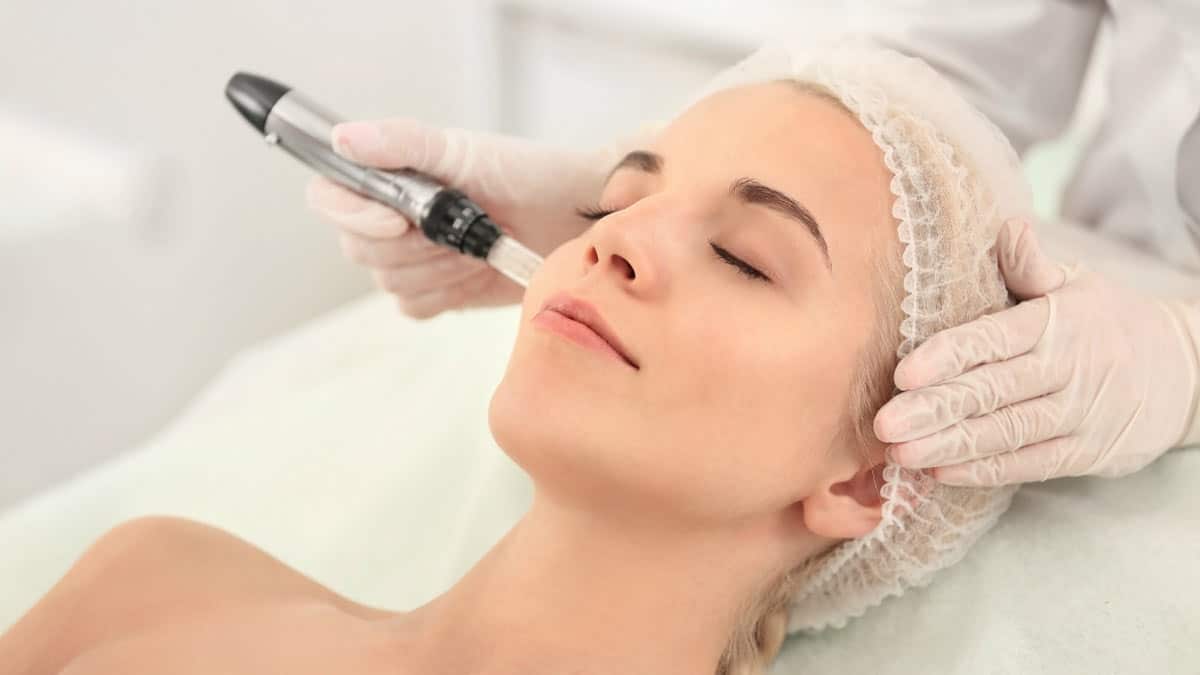Acne scars can be a persistent reminder of past skin troubles, often affecting one's confidence and self-esteem. For many individuals seeking effective solutions to minimize these marks, Dermapen treatment has emerged as a promising option. This innovative microneedling technique claims to rejuvenate the skin, enhance collagen production, and improve skin texture. But does Dermapen treatment truly reduce acne scars? This article delves into the science behind Dermapen treatment, its effectiveness on acne scars, the procedure itself, and what to expect from the results.
Understanding Dermapen Treatment
Dermapen is a microneedling device that uses fine, sterile needles to create controlled micro-injuries on the skin's surface. This process stimulates the body's natural wound-healing response, promoting collagen and elastin production. Individuals seeking Dermapen treatment in Dubai are often drawn to its minimally invasive nature and ability to deliver visible improvements over time. The procedure is performed by trained professionals who adjust the needle depth based on the patient's skin condition and the severity of the scars. With consistent treatment sessions, many people report smoother, more even skin and a noticeable reduction in scar visibility.
How Does Dermapen Treatment Work on Acne Scars?
Acne scars typically form when the skin's healing process after inflammation is disrupted, leading to tissue damage and irregular collagen formation. This can result in different types of acne scars, such as atrophic (depressed) scars, hypertrophic (raised) scars, and post-inflammatory hyperpigmentation. Dermapen treatment addresses these issues through the following mechanisms:
- Collagen Induction Therapy (CIT): By creating microchannels in the skin, Dermapen initiates a natural repair process that increases collagen and elastin levels. This helps to fill in depressed scars and smoothen skin texture.
- Enhanced Absorption of Topical Products: The micro-injuries facilitate better penetration of serums and healing agents, which can accelerate scar healing and improve skin hydration.
- Skin Resurfacing: Over time, the controlled injuries prompt cellular turnover, replacing damaged skin cells with healthier ones and gradually reducing the visibility of scars.
Effectiveness of Dermapen Treatment for Different Types of Acne Scars
The success of Dermapen treatment varies depending on the type and severity of acne scars. Here's how it impacts different scar types:
- Atrophic Scars: These depressed scars respond well to Dermapen treatment as collagen induction helps to plump and fill the indentations.
- Hypertrophic Scars: Although more challenging to treat, Dermapen can help flatten raised scars over multiple sessions.
- Post-inflammatory Hyperpigmentation (PIH): While not a true scar, Dermapen can speed up the fading of discoloration by promoting skin regeneration.
What to Expect During and After Dermapen Treatment
A typical Dermapen session involves the following steps:
- Consultation: The practitioner assesses your skin type, scar severity, and medical history to create a customized treatment plan.
- Preparation: The skin is cleansed, and a numbing cream is applied to minimize discomfort.
- Microneedling: The Dermapen device is gently moved across the treatment area, creating thousands of micro-injuries.
- Post-treatment Care: Healing serums are applied to soothe the skin and support the recovery process.
After the procedure, patients may experience redness, mild swelling, and sensitivity similar to a sunburn. These effects typically subside within a few days. Over the following weeks, new collagen forms, and skin texture gradually improves. For optimal results, multiple sessions spaced 4-6 weeks apart are recommended.
Benefits of Dermapen Treatment for Acne Scars
- Non-Surgical and Minimally Invasive: No incisions or extensive downtime.
- Improves Skin Texture and Tone: Smooths rough skin and reduces discoloration.
- Stimulates Natural Healing: Encourages the body to produce new collagen.
- Customizable Treatment: Adjustments can be made based on individual skin needs.
Potential Side Effects and Risks
While generally safe, Dermapen treatment may present some side effects, including:
- Temporary redness and swelling
- Mild bruising or pinpoint bleeding
- Skin dryness or flaking during the healing phase
- Risk of infection if post-care instructions are not followed
It's essential to choose a qualified practitioner to minimize risks and ensure proper skin assessment and care.
How Soon Can You See Results?
Visible improvements in acne scars can be noticed after 2-3 sessions, with more significant changes occurring after 4-6 treatments. The collagen remodeling process continues for several months, meaning results will progressively enhance over time.
Who is a Suitable Candidate for Dermapen Treatment?
Ideal candidates for Dermapen treatment include those with:
- Mild to moderate acne scars
- Good overall skin health
- Realistic expectations regarding gradual improvement
However, individuals with active acne, skin infections, or certain medical conditions may not be suitable candidates. A professional consultation is necessary to determine eligibility.
Comparing Dermapen Treatment to Other Acne Scar Solutions
Several treatments are available for acne scars, and Dermapen is often compared to these alternatives:
- Laser Resurfacing: Offers more dramatic results but involves longer recovery times.
- Chemical Peels: Can improve surface-level scars but may not address deeper indentations.
- Dermal Fillers: Provide immediate plumping for atrophic scars but are temporary.
Dermapen offers a balanced approach with minimal downtime, making it a popular choice for those seeking gradual and natural improvement.
Final Thoughts
Dermapen treatment is a promising solution for reducing the appearance of acne scars through collagen induction and skin rejuvenation. Its minimally invasive nature, combined with the ability to customize treatments, makes it suitable for many individuals seeking clearer skin. While results may vary, consistent sessions and proper aftercare can lead to smoother, more even skin over time.






Comments